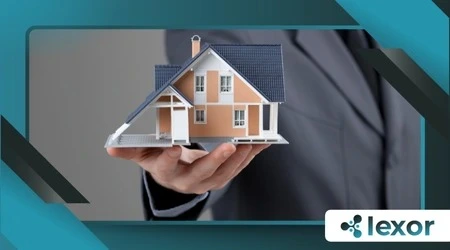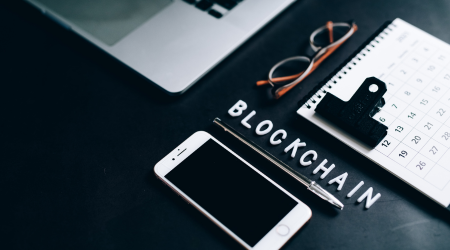How Blockchain Is Transforming the Real Estate Market

Blockchain is transforming the real estate market, revolutionizing an industry long plagued by inefficiency, opacity, and middlemen.
By decentralizing transactions, automating contracts, and enabling fractional ownership, this technology is reshaping how properties are bought, sold, and financed.
No longer confined to slow paperwork and trust-based deals, real estate is entering an era of instant settlements, global liquidity, and unprecedented transparency.
The shift is already underway—major developers, institutional investors, and even governments are piloting blockchain-based property registries and tokenized assets.
From cutting closing times from weeks to minutes to enabling micro-investments in skyscrapers, blockchain is transforming the real estate market in ways once deemed impossible. But how exactly is this happening, and what challenges remain?
The End of Paperwork and Fraud, Blockchain is transforming the real estate market
Traditional real estate transactions are drowning in bureaucracy.
A single property sale can involve dozens of documents, notaries, and intermediaries each adding cost, delays, and potential errors.
Fraud is another persistent issue; title theft and forged deeds cost the U.S. real estate market over $5 billion annually (FBI, 2023).
Blockchain solves this by storing immutable, time-stamped records. Once a property deed is logged on-chain, it cannot be altered or duplicated.
Countries like Georgia and Sweden have already implemented blockchain land registries, reducing fraud cases by over 80%.
Smart contracts further streamline the process—automating payments, approvals, and transfers once predefined conditions are met.
For example, Propy, a blockchain-based real estate platform, facilitated the world’s first fully on-chain property sale in 2023.
The deal closed in under 24 hours, compared to the usual 30-45 days. As more jurisdictions adopt this model, paper deeds and manual verifications could soon become relics of the past.
Read more: How Blockchain is Revolutionizing Supply Chain Management
Tokenization: Democratizing Property Investment
Real estate has always been an exclusive asset class, requiring massive capital and locking out small investors.
Blockchain is transforming the real estate market by enabling fractional ownership through tokenization—where properties are divided into digital shares traded on blockchain platforms.
A luxury condo in Miami, a Tokyo office tower, or even a vineyard in France can now be tokenized, allowing investors to buy fractions for as little as $100.
According to Deloitte’s 2024 Global Blockchain Survey, the tokenized real estate market surged from $2.1 billion in 2022 to $6.5 billion in 2024, a 210% increase.

Platforms like RealT and SolidBlock are leading this movement. Investors earn rental income proportional to their stake, while blockchain ensures transparent dividend distribution.
This model also unlocks liquidity traditionally illiquid assets can now be traded 24/7 on secondary markets.
However, regulatory clarity remains a hurdle. The SEC and other agencies are still defining rules for security tokens, with some jurisdictions embracing them (Switzerland, Singapore) while others remain cautious (U.S., China).
+ The Environmental Impact of Cryptocurrency: What You Need to Know
Faster, Cheaper Transactions. Blockchain is transforming the real estate market
The average U.S. home sale involves $15,000+ in closing costs, much of which goes to intermediaries—title companies, escrow agents, and banks.
Cross-border deals are even worse, with fees reaching 10-15% due to currency conversions and multiple legal systems.
Blockchain is transforming the real estate market by eliminating unnecessary middlemen. Smart contracts execute deals autonomously, reducing human error and fraud risks.
Ripple’s blockchain-based solutions, for instance, enable near-instant cross-border payments at a fraction of traditional banking fees.
Dubai’s Land Department (DLD) has been a pioneer, using blockchain to cut registration times from days to minutes.
Similarly, DeFi mortgages are emerging, where borrowers secure loans against tokenized property collateral without traditional banks.
Yet, challenges persist. Not all governments recognize blockchain-based deeds, and legacy financial institutions resist disruption. Widespread adoption will require both technological and regulatory evolution.
Enhanced Transparency and Trust, Blockchain is transforming the real estate market
One of the biggest pain points in real estate is information asymmetry. Buyers often rely on incomplete or manipulated data about a property’s history—hidden liens, unpermitted renovations, or undisclosed damages.
Blockchain fixes this by creating a permanent, auditable trail. Every repair, sale, or legal claim is recorded on-chain, accessible to future buyers.
Startups like Ubitquity provide blockchain-based title tracking, ensuring no surprises post-purchase.
Zillow has experimented with blockchain to verify listing authenticity, reducing scams.
Meanwhile, self-sovereign identity (SSI) solutions allow buyers and sellers to prove their identities without exposing sensitive data, minimizing identity theft risks.
The Rise of Smart Cities and Blockchain Integration
Beyond individual transactions, blockchain is transforming the real estate market at an urban level.
Smart cities like Singapore and Dubai are integrating blockchain into infrastructure management tracking land use, utility payments, and even carbon credits tied to properties.
For example, Singapore’s OpenCerts uses blockchain to verify property-related certifications, ensuring compliance. In Miami, officials are testing blockchain for affordable housing distribution, preventing fraud in subsidy allocations.

This shift goes beyond efficiency—it enables dynamic property rights.
Imagine a condo where ownership automatically adjusts based on usage (co-living spaces) or a commercial building where rental agreements self-update based on market conditions.
Read more: How to Start Mining Cryptocurrency: A Comprehensive Beginner’s Guide
Challenges and Regulatory Hurdles
Despite its potential, blockchain adoption faces obstacles. Scalability remains an issue—Ethereum’s high gas fees and slow transactions hinder mass usage.
Alternative chains like Solana and Polygon are stepping in, but interoperability is still a challenge.
Regulation is another hurdle. While Switzerland and Malta have clear crypto-property laws, the U.S. SEC still debates whether tokenized real estate qualifies as a security.
Tax implications are also murky—how are capital gains calculated for fractional assets?
Finally, cultural resistance slows adoption. Many brokers, lawyers, and buyers still prefer traditional methods. Education and user-friendly interfaces will be key to overcoming skepticism.
The Future: A Decentralized, Liquid Real Estate Ecosystem
Blockchain is transforming the real estate market into a borderless, 24/7 tradable asset class. Soon, we could see:
- AI-driven valuations using blockchain-verified data.
- Metaverse showings, where buyers tour properties via VR before purchasing.
- DeFi-powered mortgages, where loans are secured via tokenized collateral.
Companies like RedSwan are already tokenizing $2 billion+ in commercial real estate, while Propy expands into NFT-based deeds.
As blockchain bridges real estate with decentralized finance (DeFi), the sector could see trillions in liquidity unlocked.
Conclusion
Blockchain is transforming the real estate market, but we’re still in the early stages. Full integration requires better regulation, scalable solutions, and industry-wide collaboration.
Those who embrace this shift early—developers, investors, and governments—will lead the next era of real estate innovation. The future isn’t just digital—it’s decentralized.
Frequently Asked Questions (FAQs)
Q: How does blockchain reduce real estate fraud?
A: By storing immutable records of ownership, preventing title theft and document forgery.
Q: Can I really buy a fraction of a property?
A: Yes—tokenization platforms like RealT allow investments as small as $100 in high-value assets.
Q: Are blockchain property deeds legally recognized?
A: It depends on the country. Switzerland, UAE, and Georgia accept them, while others are still adapting laws.
Q: What are the risks of tokenized real estate?
A: Regulatory uncertainty, liquidity risks in illiquid markets, and smart contract vulnerabilities.
Q: Will blockchain replace real estate agents?
A: Not entirely, but their role will shift toward advisory services as transactions become automated.
Q: How do taxes work for tokenized properties?
A: Rules vary—some jurisdictions treat them like REITs, while others classify them as securities. Always consult a tax expert.
